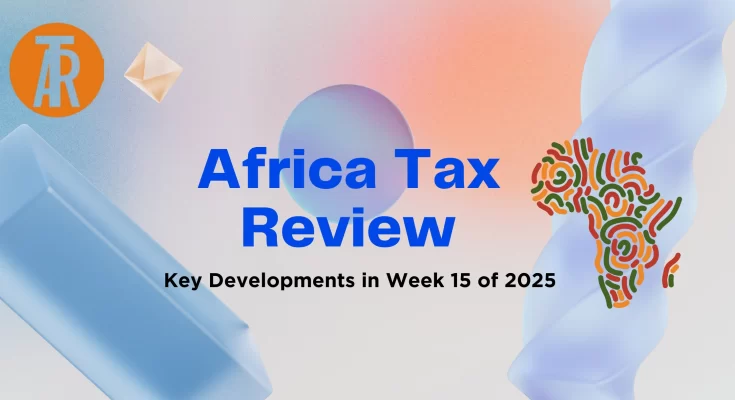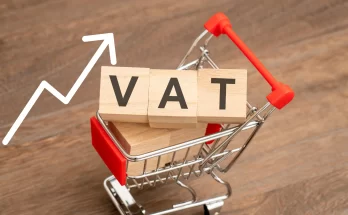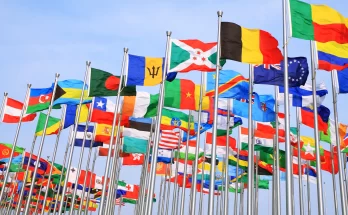Table of Contents
Africa Tax Review :Key Developments in Week 15 of 2025. Tax policy continues to serve as a critical instrument for economic management and social equity across Africa. Week 15 of 2025 (April 7–13) was marked by significant developments in South Africa, Nigeria, and Ghana, each demonstrating the delicate interplay between tax reform, political resistance, and socioeconomic considerations.
This article analyzes these developments with professional insight into their implications for fiscal sustainability and governance.
Africa Tax Review :Key Developments in Week 15 of 2025

1. South Africa: VAT Controversy Deepens Ahead of Implementation
South Africa’s proposed increase in the Value-Added Tax (VAT) rate remains one of the most hotly debated fiscal issues on the continent. The National Treasury has confirmed its intention to raise the VAT from 15% to 15.5% effective May 1, 2025, and further to 16% by April 2026.
The move is part of a broader strategy to raise an additional R13.5 billion in revenue to support critical sectors such as education, healthcare, and welfare services (Reuters, 2025).
Despite these intentions, the proposal has met strong resistance from both political and civil society groups. The Democratic Alliance (DA) has filed a legal challenge, arguing that the increase lacks the required parliamentary approval and would disproportionately affect low-income citizens.
The ongoing litigation has placed additional pressure on the African National Congress (ANC), which is already facing internal coalition tensions (EWN, 2025).
Interestingly, the South African Revenue Service (SARS) reported a 6.1% increase in total tax collections for the 2024/25 fiscal year, amounting to R1.855 trillion.
This upsurge was driven by improved collections from the financial, wholesale, and construction sectors, as well as stronger-than-expected personal income tax receipts (Reuters, 2025).

2. Nigeria: VAT Revenue Allocation Reform Sparks North-South Divide
In Nigeria, a controversial tax reform proposal to alter the formula for Value-Added Tax (VAT) distribution sparked fierce regional debate. The proposed bill seeks to allocate VAT revenue based on the state of origin of the revenue, favouring wealthier, more industrialized southern states over the current model, which incorporates equal distribution and population weighting.
Northern lawmakers and stakeholders voiced strong opposition, arguing the bill would deepen economic disparity between the North and the South. The debate, which reflects Nigeria’s broader struggle with fiscal federalism, has delayed the bill’s progression in the National Assembly (Financial Times, 2025).
The development reignites discussions on how to achieve equity in revenue sharing while still promoting accountability and encouraging states to grow their internally generated revenue (IGR).
Africa Tax Review: Key Developments in Week 14 of 2025

3. Ghana: E-Levy and Betting Tax Officially Scrapped
In line with campaign promises and rising public discontent over transaction-based taxation, Ghana officially repealed the Electronic Transaction Levy (E-Levy) and Betting Tax.
The repeal bill, signed into law by President John Mahama on April 2, 2025, reflects a shift in fiscal policy priorities, aiming to boost digital inclusion and support consumer spending (Wikipedia, 2025).
The move is being lauded by digital payment platforms and consumer rights groups. Finance Minister Cassiel Ato Forson emphasized that the government is exploring broader tax reforms to enhance efficiency and compliance while protecting vulnerable income groups.
Conclusion
Week 15 of 2025 has once again underscored the complexity of taxation in Africa—where policy decisions intersect with regional dynamics, legal frameworks, and public trust.
South Africa’s VAT reform, Nigeria’s proposed VAT allocation restructuring, and Ghana’s progressive repeal of regressive levies are all indicative of a continent striving to balance revenue generation with equity and inclusiveness.
As African economies work to enhance domestic resource mobilization, stakeholder engagement, legal certainty, and data-driven policymaking will be key to achieving a fair and sustainable tax future.
Olatunji Abdulrazaq CNA, ACTI, ACIArb(UK)
Founder/CEO, Taxmobile.Online




